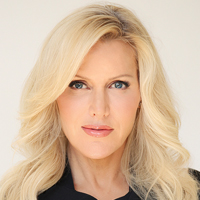Editor’s note: Kimberly Foss is a longtime columnist for Rethinking65. Read more of her articles here.

It’s easy for us, as advisors, to spend most of our time focused on helping our clients achieve their financial goals with respect to things like retirement, education funding, investment management, and other areas that directly impact their bottom-line wealth in one way or another. And after all, it’s fair to say that, in most cases, that’s what they’ve hired us to do.
But as true fiduciaries, it’s important to periodically remind ourselves that, if we’re really adding the kind of value to the relationship that we should, we also need to help our clients in ways that are not strictly bottom-line related. Ways that may not even have much to do with assets under management, but that enhance our clients’ lives and their self-perception in other ways.
Building a Client Relationship
As an example, let me share the story of Chris and Mary (names changed for privacy). Initially, our relationship revolved around asset and investment management. As beneficiaries of a recently sold, successful, multi-location retail enterprise, Chris and Mary came to me for help with investing. Their goal was to preserve and further increase the wealth generated by the sale of the business.
One of the first things we did, however, after positioning their assets for growth and income generation, was some estate planning work centered around ensuring ongoing care of their adult special-needs son, Barry (also not his real name).
To maintain Barry’s eligibility for needs-based government assistance, I connected Chris and Mary with a legal specialist who helped them set up a special needs trust. The purpose of the trust was to segregate assets to provide for Barry’s needs while allowing him to remain eligible for Medicaid and, eventually, Supplemental Security Income (SSI).
Giving Back Is Their True Passion
Over time, as our relationship continued to develop, I learned that Chris and Mary were very active with several community-support organizations that benefit special-needs persons and their families or other caregivers. That’s where they focused the majority of their volunteer activities.
“We couldn’t have made it this long taking care of Barry without the help of these groups,” Mary told me one day. “They didn’t make life with our son easy, but they made it possible.”
As we conversed more, I learned that contributing toward the ongoing viability of organizations like The Arc, Parents Helping Parents and other similar groups is a core value for Chris and Mary. Their life with Barry had convinced them that using their wealth to help other parents facing a similar challenge is a high priority.
“We’ve been blessed with the ability to pay for a lot of things ourselves,” Chris said on one occasion. “We’d like to leave something behind that can help others who may not have the same level of resources.”
Planning to Provide in Perpetuity
After we held a further series of meetings with an estate-planning expert, Chris and Mary decided to set up and fund a charitable remainder trust. Their trust is structured to provide income for Chris and Mary during their lifetimes, and then the remaining assets of the trust will pass to three charitable organizations upon their deaths.
I’ll never forget the look on their faces on the day that the charitable remainder trust was funded and finalized. Chris and Mary had affirmed and acted upon one of their most important values to provide for better lives for dozens — or perhaps hundreds — of families they might never meet.
The point of this story is to remind us all that we aren’t just taking care of our clients’ money; if we’re doing our job, we’re taking care of their lives. We are empowering our clients to realize their most important dreams, and even to embody their most cherished values.
For Chris and Mary, that involves taking care of other families like theirs. For other clients, it might involve securing the future of specialized medical treatment for children, providing for disadvantaged or abused women and children, enriching a community’s artistic and cultural resources, or any other worthwhile aims.
As fiduciary advisors, we have the ability, knowledge and expertise to help our clients not just thrive financially, but also to thrive emotionally and even spiritually. By helping them do this, we can also help to make the world a better place for everyone.
Kimberly Foss, CFP®, CPWA, is a senior wealth advisor with Mercer Advisors, practicing in the Sacramento Valley area. Her opinions are not intended to serve as specific financial, accounting or tax advice. Mercer Global Advisors Inc. is registered with the SEC and delivers all investment-related services. Mercer Advisors Inc. is a parent company of Mercer Global Advisors Inc. and is not involved with investment services. Click here for a full disclaimer. This case study was provided for illustrative purposes only.







